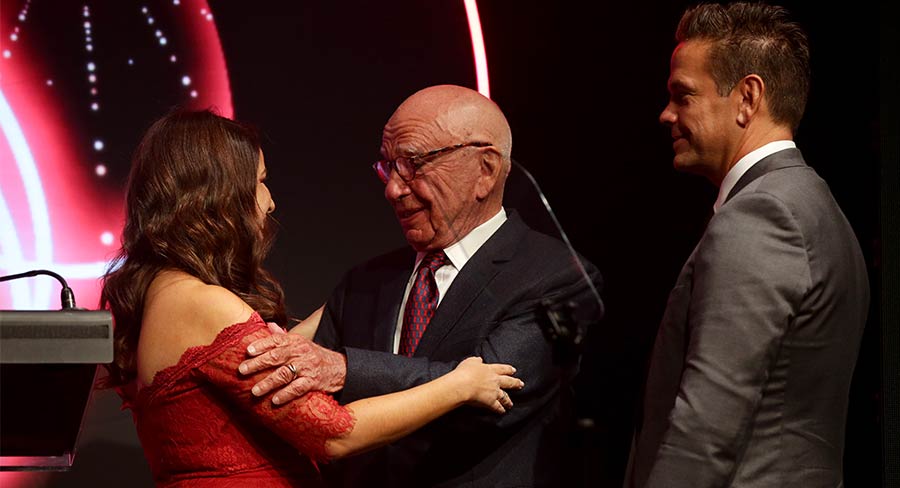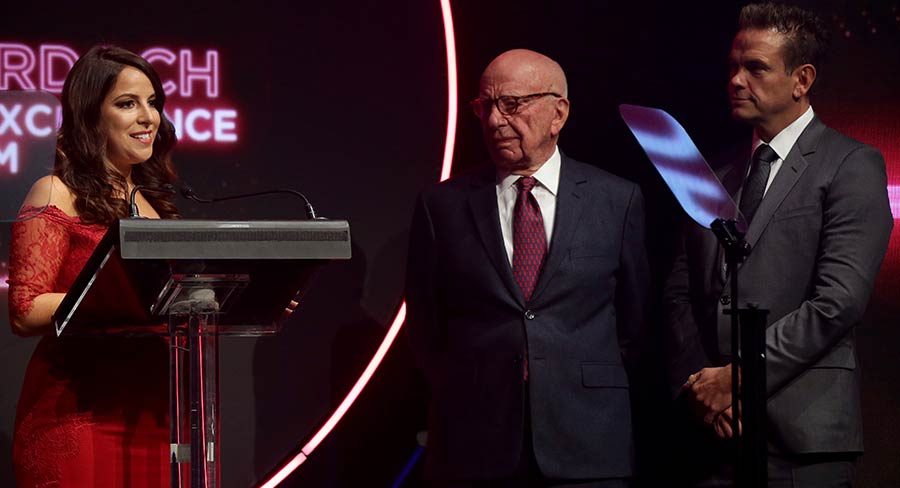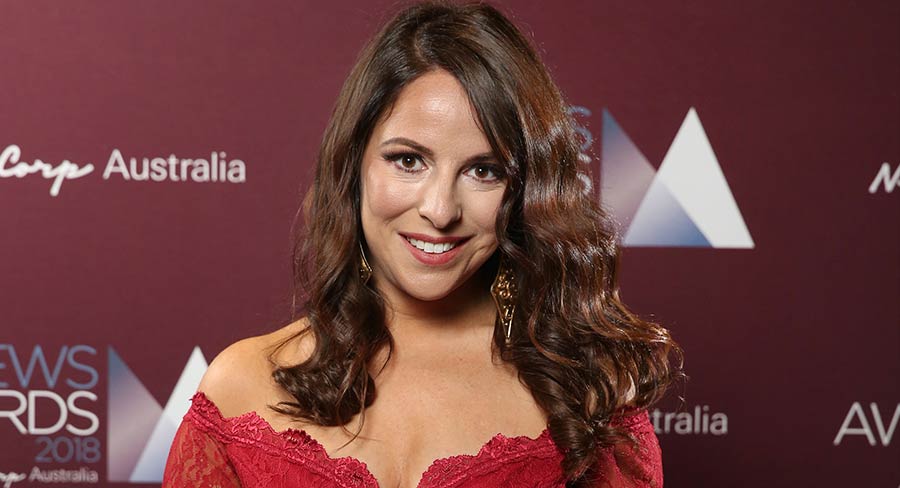In just the past few weeks, the national political editor of The Daily Telegraph, Sharri Markson, has been named the Kennedy Awards’ Journalist of the Year and she also won the Excellence in Journalism Award at the annual News Awards. She talks to Mediaweek’s James Manning about her Barnaby Joyce scoops this year and how media people hold grudges.
On the day we spoke recently, Markson had broken the story about Peter Dutton being urged to resign from cabinet and challenge PM Malcolm Turnbull for party leadership. Three days before the challenge, she correctly predicted, “Next week could be a big week.”
Some of the highlights:
You have been on fire lately with a handful of major awards.
There is never a shortage of something to write about in Canberra… in fact there are too many things.
How good was winning another News Award, this time the major one?
It was incredibly special to have both Murdochs onstage. Lachlan Murdoch gave a really beautiful tribute to his dad and spoke about how inspiring he was and how he dedicated his entire life to journalism. I got to be onstage with them, which was great – I have spent nearly my entire life at this company since I was 16. I felt very grateful to be there.

Tell us about your previous News Awards win.
Back in 2004, before they held the gala event in a theatre, the first News Awards were held at our Holt Street headquarters. I was one of the Young Journalists of the Year back then. After that I got a chance to go and work at The Sun in London. Then when they became a bigger event, I again won Young Journalist Of The Year. I didn’t want to enter again, but my editor at the time made me.
Give us the background to how you ended up as national political editor at The Daily Telegraph.
I have a background in political reporting. I was a political reporter for The Sunday Telegraph under Glenn Milne from 2007-2009. I then stayed in touch with politics when I went to Channel Seven and even when I was at Cleo magazine. I was then media editor for The Australian when Chris Dore offered me the job of political editor at The Daily Telegraph and I have been there for just under two years.
I am based in Canberra whenever Parliament is sitting, which works out to be Monday to Thursday for about 20 weeks of the year.
Were there a few things you were proud of before you broke the Barnaby Joyce story?
There were so many stories. The big one from last November was when I got a leak that cabinet was looking at holding the banking Royal Commission. That was a big story, but what was an equally big story was who had leaked from cabinet, something which went on for nearly a week.
Every single day at The Daily Telegraph we break stories and I always have a few exclusives every week from the political round, but others do as well.
Does the Barnaby Joyce story go much deeper than just someone having an affair?
Of course. Otherwise it would have been a story that lasted a few days. After the big revelation that he was having a baby with his media advisor, two days later I had the story the Turnbull Government had created a new job for her that hadn’t existed before. It became a much bigger story that involved the covering up of the scandal at the highest levels of the Turnbull Government, which signed off on the jobs and other entitled issues.
I first tried to write the story in October last year when we ran a front-page story that said Barnaby Joyce had a crisis in his personal life that was causing ripple effects for the government on the eve of the New England by-election. His whole family was devastated, but he hadn’t publicly said he had split up with his wife. I knew he had, but I couldn’t write about the affair without some sort of proof.
Over the summer holidays I had heard Vikki Campion was pregnant and during the first week back in Canberra in February this year we tried to get a photograph that showed she was pregnant.
Were you surprised at the reaction to your story?
One hundred percent. I thought it might last about three days, but I didn’t expect the backlash to whether [the story] was in the public interest. People came out and said it shouldn’t have been published, including Peter Hartcher, the political editor for The Sydney Morning Herald. The Herald didn’t touch it for the first week, neither did The Guardian and Nine was down on it as well initially.

Did you read Barnaby’s book?
No, I haven’t. I read a few chapters of his book the day before it came out, which we published in the paper.
Lachlan Murdoch talked about your “take no prisoners” approach to journalism. Do you think you are at times ruthless?
I don’t know. I would say I am very determined. I don’t take “no” for an answer.
What was it like being a media editor for The Australian?
I definitely went too hard when I was media editor. I made a lot of enemies and there are a lot of people who still don’t speak to me.
Hear also Sharri Markson talk about much more and how she writes her stories and why she needs a deadline to motivate her. “I think it is impossible for me to write without a deadline.”
Don’t miss her story about the ABC’s Emma Alberici, who attended the News Awards this year.
